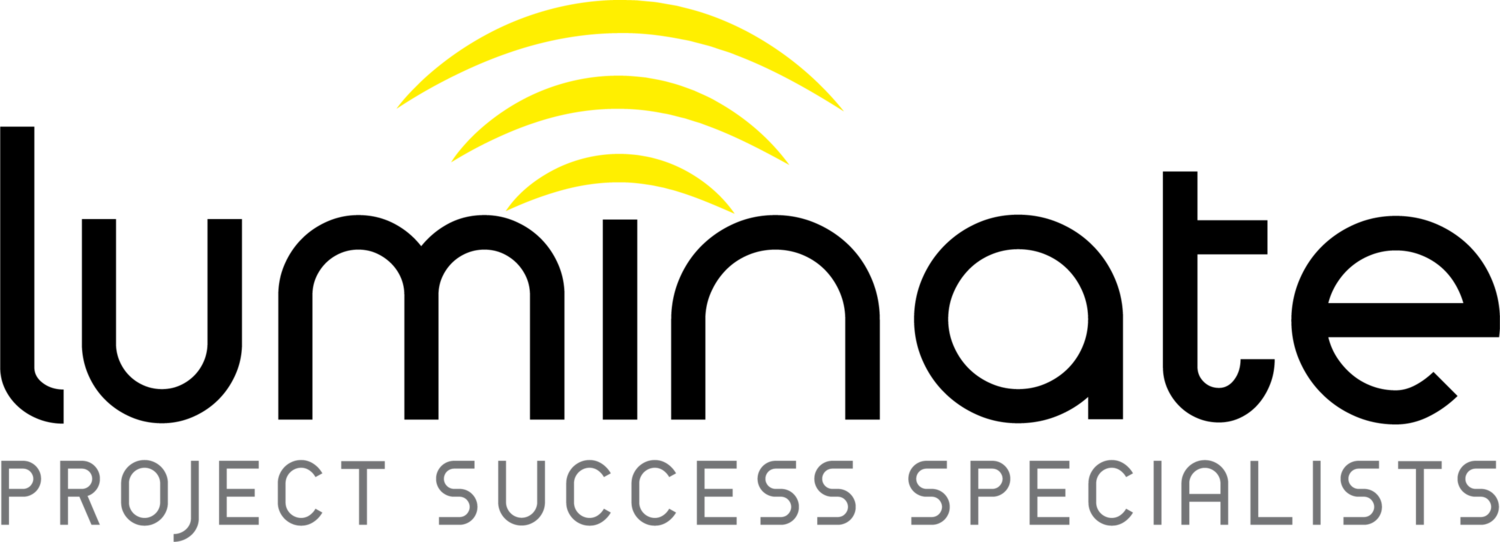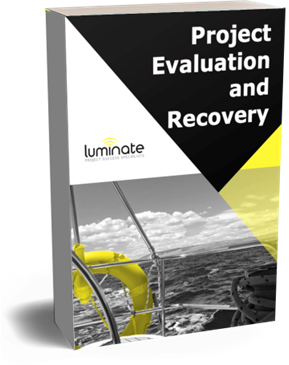
Feb 27, 2020
Project sponsors deal with a lot. Balancing high pressure project governance with a day job usually means time is of the essence. Too many times sponsors under this sort of pressure miss the vital signs, wanting to believe their cup is half full and not intervening until it’s too late.
Reading the leaves
So how can an under the pump sponsor spot the early warnings? Over the years we’ve created a short-hand for this – we call it Reading The Tea Leaves. Reading The Tea Leaves is about smart sponsorship, looking for the first shoots of trouble and moving quickly to flush out the problem before it can take root. The five big signs of a project in trouble when Reading The Tea Leaves are:
1.) Schedule anomalies. Projects and project management are not precise sciences. If your PM’s schedule has zero contingency or the resource is oversubscribed, then you’re already in trouble. Contingency is your friend, offering coverage for the unknowns. A schedule with no contingency may not be guaranteed to fail… but it’s not one we’d sign up to.
2.) Spend alignment. Perfectly aligned forecasts to budget might look good at first glance. But think about it… you now have no room for unexpected issues. Smart personal budgeting accounts for unexpected overseas weddings, car breakdowns, or even illness. Your PM should do the same, reducing risk to business case benefits by building fat into their plan. By setting expectations around budget contingency thresholds at the start of the project, sponsors and PMs go a long way to avoiding this pitfall.
3.) Contract reliance. If your PM is reaching for the vendor contract it means things are bad. You’ve already lost the battle and likely the war. A project is only as good as its people and the culture they create. If there’s a disagreement, the letter of the agreement is probably not the smartest route to solution, likely to inflame tension and reduce engaged discussion. Remember, EQ will always trump IQ – a PM capable of walking in the vendor’s shoes will always deliver a more collaborative execution and quality outcome.
4.) The death march. A team being worked into the ground by their PM serves no-one. It’s easy to see the warnings… high levels of illness, resource turnover, balls being dropped by normally safe hands…if there’s too much work for the size of the team or budget, then that’s a problem for the sponsor. And you can’t just put your head in the sand – after all it’s your signature on the business case.
5.) The heroic PM. The final Read The Tea Leaves behaviour can be a tougher one for sponsors to see. After all, a PM willing to take on more responsibility, insisting “they’ve got this”, and keeping problems from the sponsor’s eyes can be useful. But it’s a fine line between catching issues, solving problems, and just plain biting off more than you can chew. It’s worth remembering the ultimate destination of martyrdom is death… or marginally less dramatic in project management, being kicked off the project. A sponsor needs to be alert to this, and save their PM from this fate.
Act fast for project recovery
If you recognise any of these behaviours next time you read your project’s tea leaves, it’s your responsibility to act. Facing reality is tough. Admitting you’ve got a problem and a big one at that, is the hardest thing to do.
Yet it’s the first and most important step on the road to recovery. As the sponsor of a project that’s gone off the rails, it’s your duty to take action. And that means appointing a recovery manager as a matter of urgency.

Jan 10, 2020
Every great project manager knows when to say no. Although yes can often be easier. Especially with the sponsor staring you in the face, asking the impossible and slowly tightening those purse strings…
But seriously – the project manager who can’t say no will eventually drag a project down. Project managers are paid for their experience. It’s not their job to just say yes. And every PM worth their salt knows that means delivering a genuine warts and all perspective on the project and its issues.
That doesn’t mean shirking responsibility. Far from it. If you’re a Type 2 PM you’ll know it’s in your DNA to run at the fire.
No. What it means is knowing when a sponsor and a project needs the truth. The ability to deliver truth is the sign of true professional maturity. It can’t hurt that if your experience and domain expertise is showing you a better way, saying no will guarantee a better outcome.
Of course, if you’re a Type 2 PM you’ll have delivered against the odds on more than one occasion. It’s inevitable you’ll have occasionally said yes to the impossible, just to make a good impression or even because your professional pride demanded it.
We once worked with a sponsor who had a great party trick. He’d call up the media and announce a launch date… before we’d even locked down a plan. Now, it wasn’t a smart approach, and it didn’t guarantee success. But it did sharpen focus. And we never said no. It became a point of pride to deliver, even if it came at a cost.
The key to saying no is professional maturity. It doesn’t have to be a negative thing. And nor should it be an out and out no. As a Type 2 PM your experience and war stories mean “no” comes with solid rationale. It may be what’s being asked isn’t a priority, or comes with risk that can’t be mitigated. Or maybe you just know your team’s knackered, and another week of long hours and weekend work will break the camel’s back.
Of course, the sponsor will challenge you. It’s their right. And there is the small matter of the purse strings. So here’s our tip for the day. Remember that EQ will trump IQ every time. Read the room. Be respectful, but not apologetic. But ultimately saying no is often not only the right thing to do. It’s your job.

Dec 17, 2019
Let’s face it… worrying and PMs are made for each other. Managing projects is a tricky business, and the PM who says they never worry is likely a liar. Truth is, you’ll always worry about your project. It’s what you do with that worry that separates the good from the great.
The power of EQ in your project
A great PM will manage their emotions, their self-awareness and EQ helping them understand the impact they have on those close to them. Coping mechanisms to deal with stress and pressure are the key differentiators for the Type 2 PM, the “let’s get this done” breed. Whether staying composed with a challenging steerco or demonstrating a controlled calmness to the team, showing control and confidence in the face of overwhelming stress is catching. Watch a team led by someone like this – they tend to reflect the PM’s approach to pressure. There’s no emotional hyperbole, and emotional responses are calmly defused with facts. The positive bearing this can have on a project is hard to overstate.
The value of an emotionally intelligent PM
So what does this mean for your project? Put simply, the more complex the environment, the more emotionally intelligent you need your PM to be. Skilled in adapting to complexity, your PM needs to express emotions and behaviours appropriate to your environment.
Type 2 project managers with these skills build more productive relationships and achieve better delivery outcomes for your project. Your key takeout is this – EQ always trumps IQ when it comes to a PM. And if you’re worried your PM doesn’t have the EQ chops you need, remember… if you can’t change the PM, change the PM.

Dec 17, 2019
Every project has its nay sayers. You know them… the difficult stakeholder, the questioning tech lead, the uncertain CMO… if you’ve not met them personally we can guarantee you’ve met someone similar. Living in the detail and slowing the project down, it can be quite easy to dismiss them. After all – everyone else is backing you, there’s nothing stopping you from charging ahead with all that wide support…
Embracing the challenge
But that doesn’t mean you should. No – what you should do is stop and hear them out. Read the situation, use your EQ to recognise the emotions, body language, and tone being used. The time invested now in understanding and knowing the individual and their drivers will be repaid in spades down the track. Building trust with someone so passionate about your project, especially if it impacts an area they are expert in is just a smart play.
Delivering a better outcome
And the earlier you decide to compromise, the cheaper the cost of change. Invariably compromise will result in a better solution and a better relationship with the challenging stakeholder. Listen and learn. You won’t regret it.

Dec 11, 2019
Spotting a great project manager is easier than you think. Some businesses take a relaxed approach to the role. It’s not unusual for resident subject matter experts to find themselves project managing, or for someone with excess capacity to find themselves shoehorned in. Sometimes it works, and sometimes… well, sometimes there’s just no natural aptitude. They’re plain wrong. And as sure as day follows night, a weak PM inevitably means a weak project.
Project disaster
The chain of events is usually predictable. First comes sponsor guilt at picking the wrong person, followed closely by panic at a failing project. Finally the sponsor is sucked into micromanaging and day job distraction, falsely hoping it’ll help get the project back on track.
Sometimes of course, a left field approach works. Over the years we’ve developed a bit of short hand for spotting those winners. Usually they are just born PMs (more on that later), or they’ve had first class coaching, usually in the five characteristics of a great project manager.
Five traits of a great project manager
Number One : Resilience. Being resilient isn’t about always being right. It’s about flexibility and adapting to challenges.
Number Two : They don’t need to please people. A good project manager knows pleasing everyone is impossible. Concessions are the name of the game, and knowing how a concession can move you on.
Number Three : They are superb planners, but embrace change. Change is your friend in a project, nothing runs like clockwork. How you manage change and keep your stakeholders informed will govern your success.
Number Four : Good enough is good enough. Don’t let perfection get in the way of good. If you’re delivering the business case benefits remember that’s what was asked for.
Number Five : They are not afraid to show vulnerability. ‘I don’t know’, ‘I need help’ or ‘I screwed up’ are all part of their vocabulary. A great PM knows they can’t do it alone, and uses vulnerability to build vital support.
And the one you can’t coach…
Finally, the one they’ll be born with. We don’t put it in our top five because it’s the one thing you can’t coach. You’ll see it when the fires erupt, when everyone’s heading for cover and the fingers start to point. If that’s happening in your project, look for the one running at the fire, showing un-coachable ticker. That’s the guy you need in charge, the one with fire fighting in their DNA. Because you can coach most of the five characteristics into your PM, but everyone knows you can’t coach ticker.






